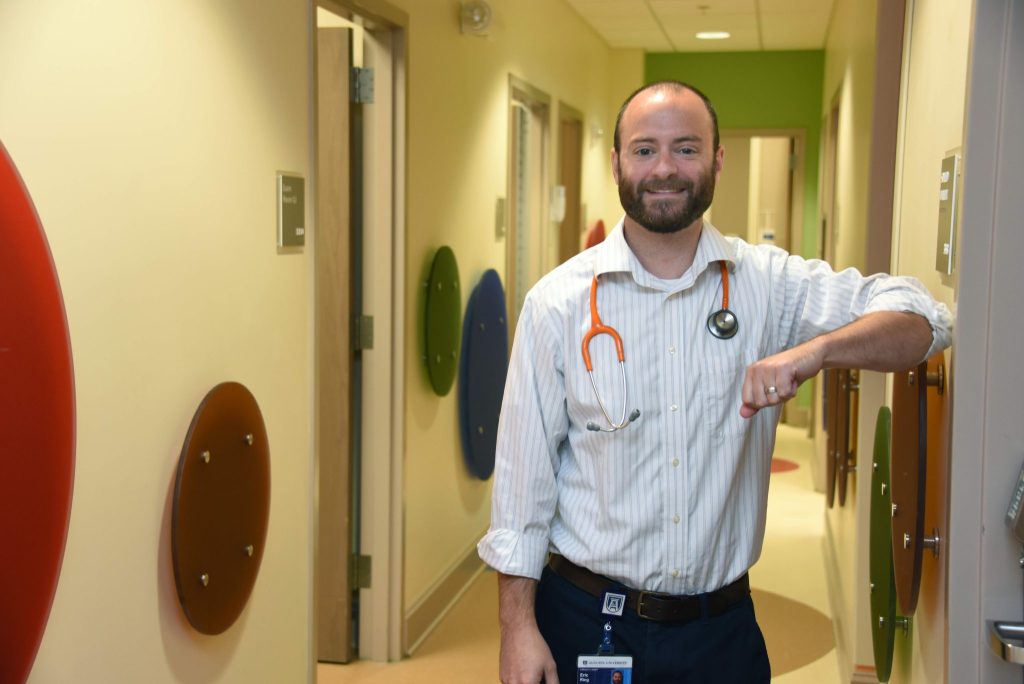How informed are you about your family’s medical history? It might be time to pick up the phone and give your family members a call.
“It is remarkable, the number of human illnesses that have their origins in genetic makeup,” says John Henson, MD. Henson is the director of the Hereditary Cancer Clinic at the Georgia Cancer Clinic. He works with adult patients to uncover illnesses, such as cancer, that can be found in their genetic makeup. By doing this, they can have earlier detection and treatment which could possibly save not only their lives but also their children’s or nieces’ and nephews’ lives.
As the adult hereditary clinic grew, patients began to question if their genetics would affect their own children, however, there was no clinic available for children.
“In my practice here in Augusta, it quickly became apparent that it was a big need that patients had,” Eric Ring, MD, says. Ring is an associate professor in the department of Pediatrics: Hematology/Oncology at the Medical College of Georgia.


Together, Ring and Henson created the Pediatric Cancer Predisposition Clinic at the Children’s Hospital of Georgia. The clinic focuses on children with a predisposition to cancer, a genetic mutation that increases the chance of developing cancer at an earlier age. Multiple types of hereditary predisposition cancers exist, such as neurofibromatosis type 1 and fanconi anemia.
When a patient comes in for an appointment, Ring or Henson will go through your family’s history, typically starting with the parents. From there they will move to aunts, uncles, grandparents, and great-grandparents, to create what they call is a pedigree. A pedigree is a chart that displays your family’s medical history and how certain illnesses can be passed down.
Once they review the pedigree and determine if a genetic test is needed, they will walk the patient right down the hall to do either a blood test, saliva, or a swab, test, and go from there.
If you have a family history of cancer or other genetic mutations, such as the red gene mutation, speak to your family’s doctor about getting your child a referral to the Pediatric Cancer Predisposition Clinic. If you are unsure, speak to your doctor about getting a referral for yourself to the Hereditary Cancer Clinic.
If you want more information about hereditary cancer, check out our episode of A Cancer Conversation with Drs. Ring and Henson. You can also book an appointment or call the Pediatric Cancer Predisposition Clinic at 706-721-4929 for more information.





